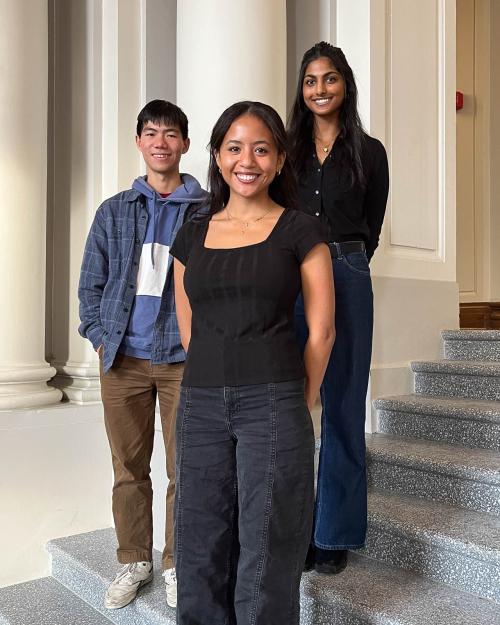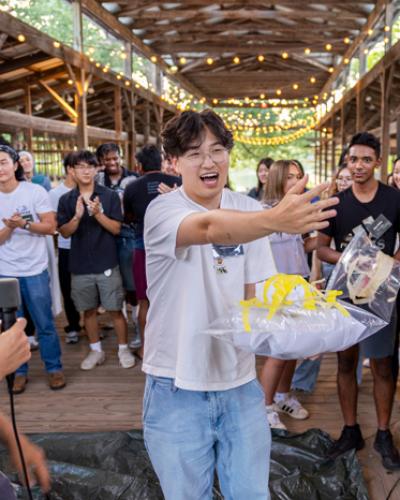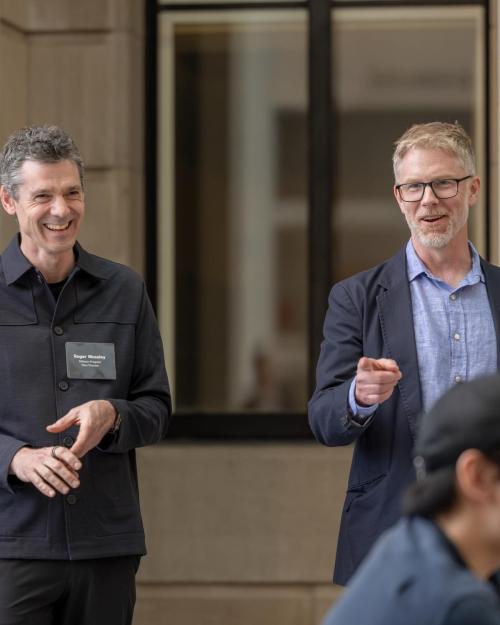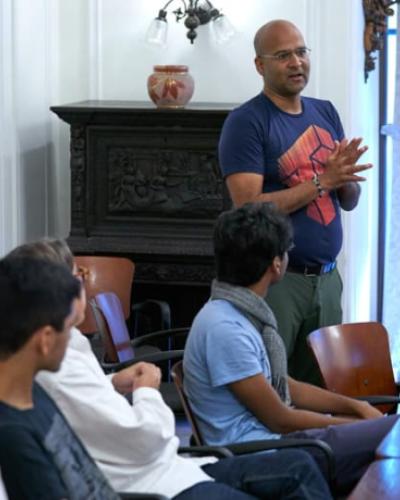Earlier this year, Tapan Parikh, associate professor in the Department of Information Science at Cornell Tech, was named the faculty director for the Milstein Program in Technology & Humanity at the Cornell Tech campus in New York City. As part of this unique multidisciplinary program, Milstein Program participants will have the opportunity to spend two summers at Cornell Tech working with Professor Parikh. We were eager to hear more about what to expect during our summers at Cornell Tech, so Professor Parikh sat down with me for a Q&A to answer some of our questions and talk about his motivations for joining the program.
What is your background and interests?
I’m trained as a computer scientist, but I’ve always done interdisciplinary work. In graduate school and earlier in my career, I worked on a lot of applications of computing technology toward international development and rural development, in particular. I worked on things like making mobile phone networks for small farmers and applications for microfinance organizations. More recently, I have been working on technology tools for education and helping young people collect and manage their own data for specific purposes.
What made you want to work with the Milstein Program in Technology & Humanity?
I am really interested in the application of computing technology toward different disciplines and domains. I’m also excited about the social responsibility of technologists, so it will be very interesting working with undergrads on those topics. I’m also very excited to work with undergrads; I’ve worked my whole career with graduate students and I have not done that much undergraduate teaching.
How do you anticipate the Milstein Program undergrads will interact with the graduate students and others at Cornell Tech?
I hope there will be collaboration. For one thing, there won’t be that many master's students around because it will be the summer when you are all here, but you will be able to interact with PhD students. The PhD students in my group will be there as mentors and advisors and there will be other faculty members teaching during the program.

How do classes work at Cornell Tech? What is meant by "studio-based" and "project-based"?
Well, the studio-based and project-based styles of teaching are for our current master’s program. I don’t think you will be doing exactly that when you are here for your summer programs, but we’ll draw inspiration from that model. Studio-based is where you take students from all the different graduate programs, whether it be technology or law or business, and bring them all together to work on creative group projects that are applicable to the real world. You really try to approximate what a real-world environment might look like for some of these students when they graduate. Given that you are undergraduates and you’re not necessarily in professional programs and there is more of a focus at the undergraduate level on liberal arts education, we can take some inspiration from that in terms of doing group projects and having people with different backgrounds and disciplines working together. We can also try to make it a little bit more creative and open-ended. This will give you the opportunity not only to develop your professional skills, but also explore interests to find what you are really passionate about.
What are the goals for each summer?
The planning for this is kind of ongoing, so there are still some things to work out. The current plan is to have your first summer be some core skills development or conceptual — either design or technological — class, and then have one project-based group class to apply those skills. The second summer would be more open-ended, you could do an internship, continue your group project from the first year or create a new group project that we would help you set up.

What skills do you think we should learn before our experience at Cornell Tech?
I think having a basic familiarity with programming or user-centered design would be helpful, so that you have a concrete skill set that you can start applying to the project you are working on. I would also say just have a passion for something. Find an application of new technology that you care about and have a sense of what work is going on in that area and what the key challenges and opportunities are in that area.
If we are all in different majors, how do you anticipate we will we work together? What does that look like?
That will always be challenging. Group formation can be really tricky and especially in a group that is so diverse in the interests you are bringing. I can’t say right now exactly how I will handle it, but I will look across the board and try to find clusters and themes and find projects and organizations that relate to those themes. There will have to be some element of compromise. We can also deal with this on a case-by-case basis.
Will we be working with other groups at Cornell Tech?
We would help you by finding some organizations that are interested in working with students, but also, some of you may have your own network or organizations that you would like to connect with in New York City, so I would encourage students to bring their own networks and contacts. If there is a project or company that you are really passionate about, we can find ways to include your interests in the design of the group project.
Is there anything else you want Milstein students to know about coming to Cornell Tech?
I just want to make this really, really fun for you all. I don’t want to make it seem like another requirement that you just have to check off. I really want it to be a place where you get to do as much or as close to what you want as possible. I am very focused on students driving their own educational trajectory.





